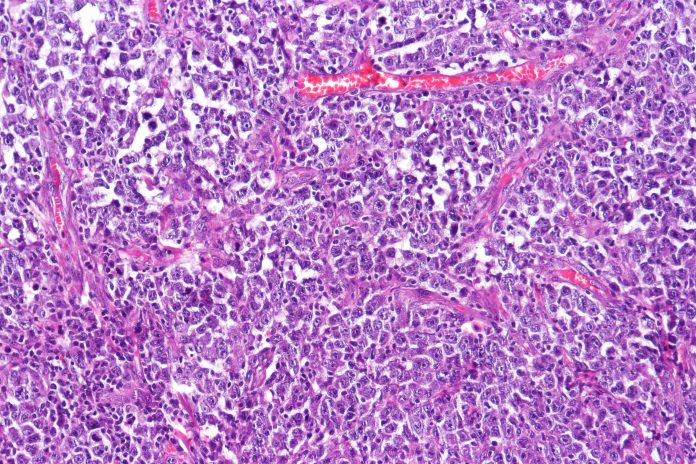
Roche announced today that the European Commission (EC) has granted conditional marketing approval for its bispecific antibody (bsAb) glofitamab, sold under the trade name Columvi, for the treatment of adult patients with relapsed or refractory diffuse large B-cell lymphoma (DLBCL) after two or more lines of systemic therapy. The EC decision comes less than a month after glofitamab received a nod from the FDA under an accelerated approval and sets up a DLBCL competition between Roche and the AbbVie and Genmab’s bsAb Epkinly (epcoritamab-bysp) which won approval in DLBCL in May. Both Columvi and Epkinly are CD20xCD3 bispecific T-cell engagers.
According to a company press release announcing the newest approval, Roche noted that Columvi “has the potential to change the current standard of care in DLBCL. As well as inducing early and long-lasting responses in people with heavily pre-treated or refractory DLBCL, Columvi is designed to be given for a fixed period of time meaning that people have a target end date for their course of treatment and the possibility of a treatment-free period.” The fixed-duration treatment has the potential to lower the risk of adverse effects from the drug, by allowing patients to be treatment-free for a period of time.
“As pioneers in the development of innovative T-cell-engaging bispecific antibodies, we are delighted that we can now offer Columvi as the first approved treatment of its kind to people in Europe,” said Levi Garraway, MD, PhD, Roche’s CMO and head of global product development. “We are confident that thanks to its off-the-shelf availability, fixed-duration regimen and durability, Columvi will positively transform the treatment experience for relapsed or refractory diffuse large B-cell lymphoma.”
DLBCL is one of the most prevalent and aggressive hematologic malignancies in adults. While patients often respond to first-line therapies, 40% are not cured with the current standard of care, and those that require additional therapy have poor outcomes.
The approval is based on data from a Phase I/II study where glofitamab was given as a fixed course treatment that induced early and long-lasting response in patients relapsed or refractory DLBCL. In the study cohort, 83.3% of patients were refractory to their most recent therapy, 90% were refractory to any prior line of therapy, and 32.5% had been treated with CAR-T cell therapy.
Results from the Phase I/II clinical trial showed that glofitamab:
- Induced complete response (CR) in 35.2% of patients.
- Achieved an overall response (OR) rate of 50%, which is the a combination of CR pluse those with a decrease in the amount of cancer in their body.
Among those who achieved CR, nearly three-quarters (74.6%) continued to experience a response at 12 months, while the median duration of CR was not reached. Median follow-up for duration of response was 12.8 months, while median time to first CR was 42 days.
The most common adverse events reported from the study were cytokine release syndrome (CRS) 64.3%, anemia (30.5%), and thrombocytopenia 24.7%. CRS was generally low grade, with more than 60% of instances Grade 1 or Grade 2, while one patient discontinued treatment due to CRS.
“As the lead investigator for the (clinical) study, I have seen first-hand the early and long-lasting responses that Columvi can induce, when given to patients for a fixed period of time,” said Michael Dickinson, MD, PhD, associate professor of the Peter MacCallum Cancer Centre and Royal Melbourne Hospital, Australia. “It is exciting that with this approval, patients in Europe with heavily pre-treated or refractory diffuse large B-cell lymphoma will now have a new, potentially practice-changing treatment option that will allow them time off of therapy to resume their routine activities, helping to alleviate some of the physical and emotional burdens caused by cancer treatment.”
Roche has another clinical trials ongoing for the use of glofitamab in combination with gemcitabine and oxaliplatin versus rituximab and oxaliplatin in patients with second-line plus DLBCL who are ineligible for autologous stem cell transplant. It is also planning addition Phase III studies, including using glofitamab as a first-line therapy.













